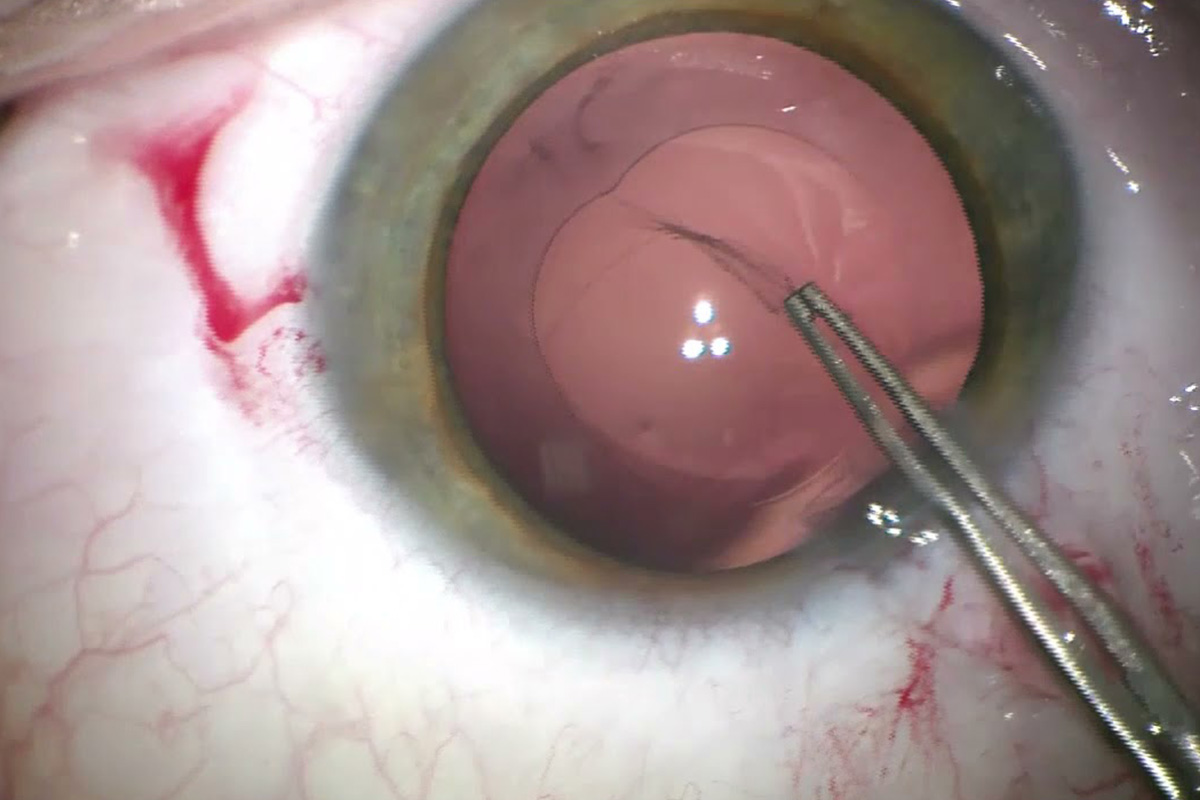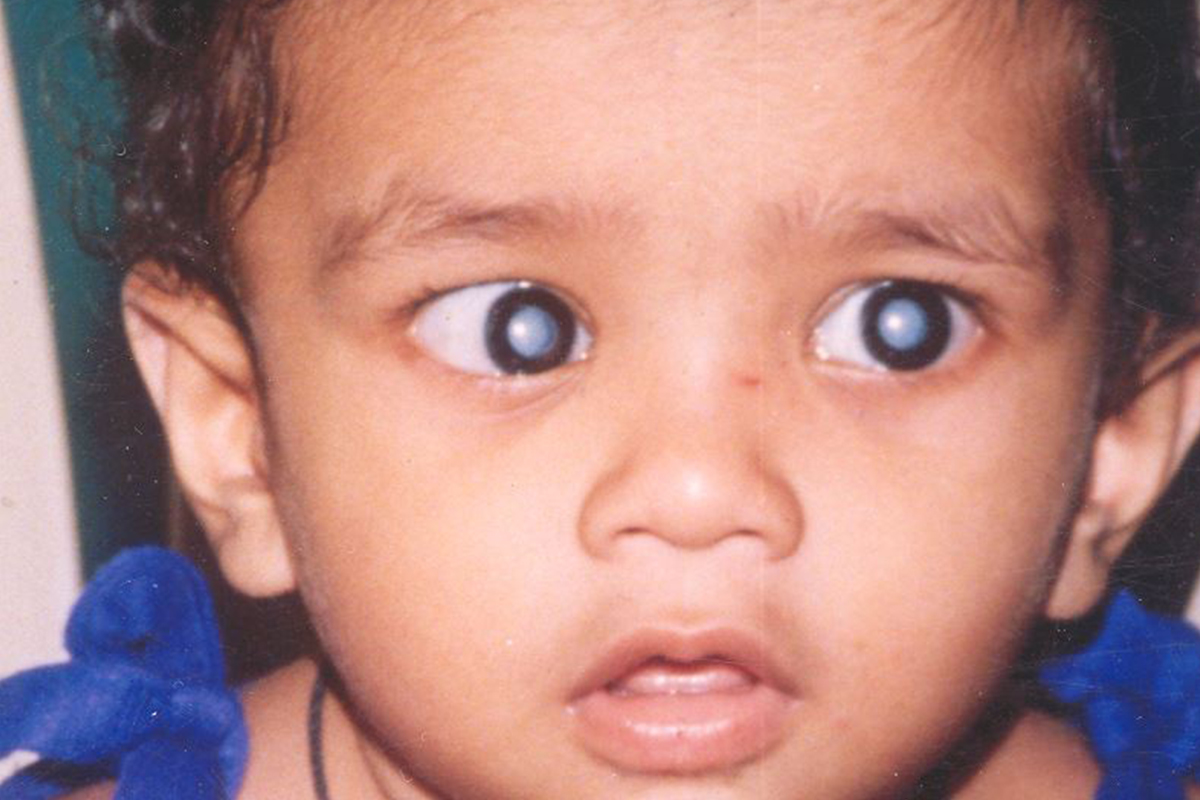A child can be born with a cloudy cataractous lens known as congenital cataract or a cataract can develop in early years of life which is known as developmental cataract.
In simple language, Cataracts form a cloudy image on the retina and this can lead to limiting one’s view of the outside world. If such conditions if it is not removed in timely fashion, it can lead to permanent loss of eye sight.
In total world, Pediatric Cataract represents about 5% to 20% of global Pediatric Blindness.
It is important for pediatric cataract to be treated timely as the brain understand images through eyes and then forms the perceptions further in life regarding various images and its understanding. Even a few months of cataracts in new born can create huge difference in future vision before they are treated fully and promptly. It is said that, for a new born child, the ideal time to remove cataract is often urgent, as early as 4-6 weeks of life.


Here comes the role of pediatric ophthalmologists, as pediatric eyes are quietly different from the adult eye. Since pediatric eyes are more fragile and delicate, it requires special planning and attention during each and every step of the surgery. Pediatric ophthalmologist is specially trained for handling every difficult condition which arise during surgery and specifically for the post-operative rehabilitation of the patient.
For the surgery, entire lens is removed by cutting and aspirating the lens in fragments. To keep the incisions closed for appropriate healing process, sutures are required.
Since the natural lens is removed during the surgery, it requires a replacement of natural lens as well. Based on the case and the child, surgeons recommend Permanent intraocular lens Implant, Contact Lenses or glasses.
After the surgery, a bandage is generally placed over the eye for the protection on the first night, which is then removed the next day. However, a protective shield is often said to be necessary for the first week during the child’s sleep. To promote the healing process of the surgery, a surgeon recommends drops and ointment which also prevents infection in the eyes due to surgery.
It is advisable for a child, who has suffered Cataract at an early stage to take 2-4 follow up to their ophthalmologist every year.
MYTHS:
Pediatric cataracts should not be operated at smaller age. We should wait till child is grown up.
FACTS:
Pediatric cataracts are an emergency. We should operate it as soon as diagnosed. If it is left untreated, it can lead to permanent loss of vision in that eye due to suppression mechanism.

